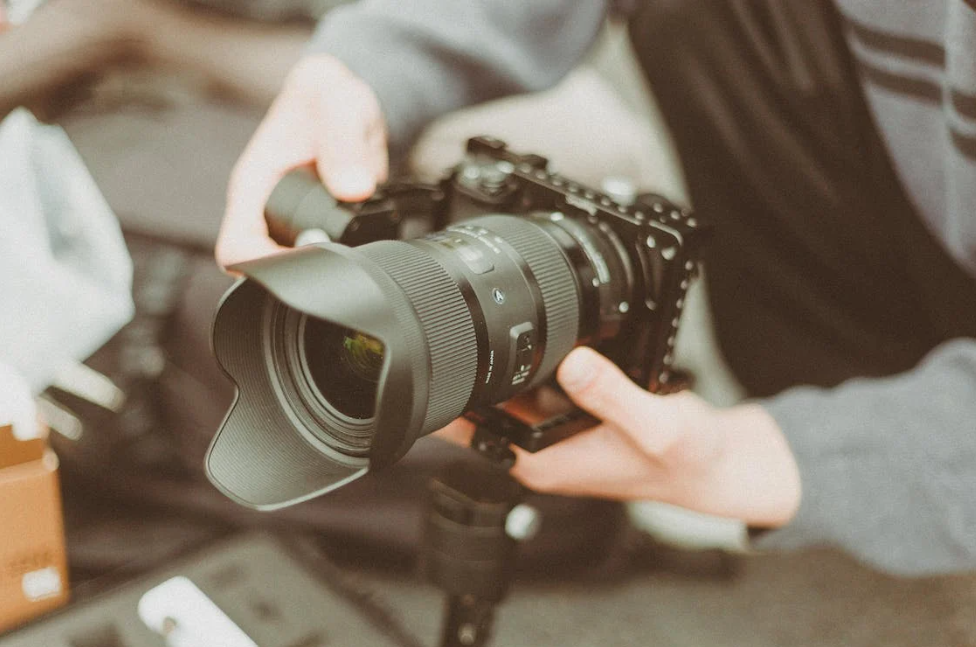In the dynamic world of visual narration, photography stands as a powerful medium, capable of freezing moments in time and communicating emotions with precision. This comprehensive guide aims to unravel the intricacies of photography, exploring various techniques and offering valuable tips to help both beginners and enthusiasts enhance their skills.
Understanding the Essence of Photography
At its core, photography is the art and science of capturing light to create images. It’s a medium through which individuals can express their creativity, document reality, and evoke emotions. Whether you’re using a sophisticated DSLR or a smartphone, the principles of photography remain constant.
The Basics of Photography
From mastering composition rules to achieving sharp focus and depth of field, these next steps will elevate your images to the next level.
1. Understanding Your Camera
Before diving into advanced techniques, it’s crucial to understand the basics of your camera. Familiarize yourself with settings such as aperture, shutter speed, and ISO. Knowing how to navigate your camera’s functions will empower you to capture the desired shots.
2. Composition Rules
Composition is the backbone of a compelling photograph. Learn and apply basic composition rules such as the rule of thirds, leading lines, and framing. These principles guide the viewer’s eye and contribute to the overall visual appeal.
3. Mastering Focus and Depth of Field
Achieving sharp focus and understanding depth of field are fundamental skills in photography. Experiment with different focus points and apertures to control what’s in focus and what’s blurred in the background.
All About Photography Techniques
From understanding your camera’s settings to mastering composition, let’s now broaden our scope to encompass various advanced techniques that will further enhance your photography skills.
1. Portraiture Perfection
Portraits are a timeless aspect of photography. To capture stunning portraits, focus on connecting with your subject, experimenting with lighting, and paying attention to facial expressions. A well-executed portrait tells a story within a single frame.
2. Landscape Wonders
Landscape photography allows you to capture the vast beauty of nature. Pay attention to composition, use leading lines to guide the viewer’s eye, and leverage natural lighting to enhance the scenic elements. Patience is key in capturing the perfect landscape shot.
3. Macro Magic
Delve into the world of macro photography to capture intricate details often overlooked by the naked eye. Use a macro lens or the macro mode on your camera to focus on small subjects, revealing a new perspective on everyday objects.
4. Action and Sports Photography
Capturing fast-paced action requires quick reflexes and a good understanding of your camera’s settings. Experiment with higher shutter speeds to freeze motion and consider the use of burst mode to capture a sequence of moments.
5. Low-Light Photography
Mastering low-light photography opens up opportunities to capture scenes in challenging conditions. Experiment with higher ISO settings, use a tripod for stability, and explore long exposure techniques to capture stunning images in low-light environments.
Tips to Elevate Your Photography Game
We’ll explore valuable tips and techniques to elevate your photography game. These insights will help you refine your craft and capture truly remarkable images.
1. Continuous Learning
Photography is a continuously evolving field. Stay updated on the latest techniques, equipment, and trends by following reputable photography blogs, attending workshops, and engaging with the photography community.
2. Experimentation is Key
Don’t be afraid to experiment with different styles and techniques. Whether it’s trying a new editing software or exploring a unique photography genre, experimentation is a powerful way to discover your own distinctive style.
3. Critically Analyze Your Work
Regularly review your photographs with a critical eye. Identify areas for improvement, whether it’s composition, lighting, or post-processing. Constructive self-analysis is a pathway to growth as a photographer.
4. Develop Your Post-Processing Skills
Post-processing is an integral part of modern photography. Learn to use editing software to enhance your images subtly. Understanding color correction, cropping, and retouching will elevate the final quality of your photographs.
5. Build a Diverse Portfolio
Aim to diversify your photography portfolio by exploring different genres. Whether it’s portraits, landscapes, or abstract photography, a varied portfolio showcases your versatility as a photographer.
All About Photography: A Continuous Journey
Photography, as an art form, is not about reaching a destination but rather embarking on a continuous journey of improvement and self-expression. It’s about capturing moments, telling stories, and freezing emotions in a single frame.
Frequently Asked Questions (FAQs)
Q1: Is expensive equipment necessary for good photography?
A1: While high-end equipment can enhance certain aspects of photography, creativity and skill play a more significant role. A skilled photographer can capture compelling images with modest equipment.
Q2: How can I improve my composition skills?
A2: Practice is key to improving composition skills. Study the work of established photographers, understand composition rules, and actively apply them in your photography sessions.
Q3: What’s the importance of post-processing in photography?
A3: Post-processing allows photographers to refine and enhance their images. It includes adjustments for exposure, color correction, and fine-tuning to achieve the desired visual impact.
Q4: How can I stay inspired as a photographer?
A4: Stay inspired by regularly exploring the work of other photographers, engaging with the photography community, and challenging yourself with new projects and subjects.
Q5: What’s the best way to learn photography techniques?
A5: Learning photography is a combination of studying theory, practicing consistently, and seeking constructive feedback. Online courses, workshops, and tutorials can also provide valuable insights.
Conclusion
In conclusion, photography is a multifaceted art form that invites individuals to explore their creativity and develop technical skills. By understanding the basics, experimenting with various techniques, and continuously seeking improvement, photographers can embark on a fulfilling journey of capturing moments and telling stories through the lens. Whether you’re a beginner or an experienced photographer, the world of photography offers endless possibilities for growth and self-expression.




